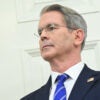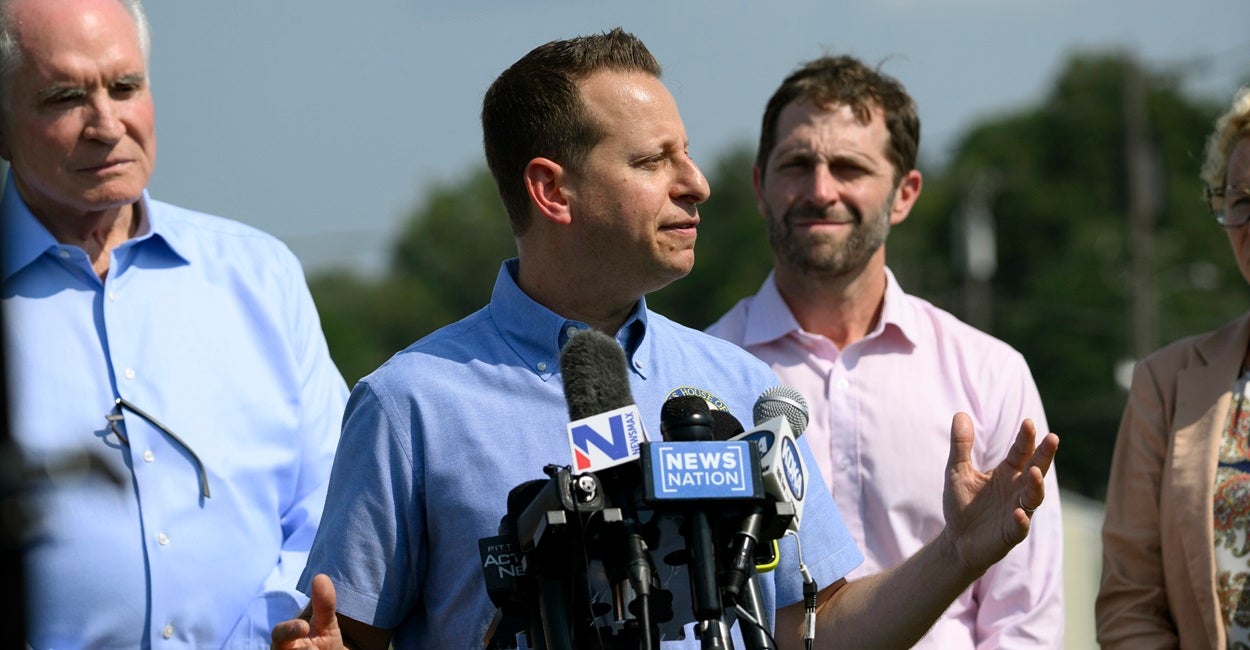DAILY CALLER NEWS FOUNDATION—Elon Musk and Vivek Ramaswamy’s plans to cut waste, fraud, and abuse within the federal government’s nearly $7 trillion budget through President-elect Donald Trump’s Department of Government Efficiency is beginning to attract support from a notable group: Democratic lawmakers.
Democratic Florida Rep. Jared Moskowitz is the first Democratic lawmaker to join the House’s Department of Government Efficiency Caucus helmed by Republican Reps. Aaron Bean of Florida and Pete Sessions of Texas, according to a Tuesday press release.
“Today. I will join the Congressional DOGE [Department of Government Efficiency] Caucus, because I believe that streamlining government processes and reducing ineffective government spending should not be a partisan issue,” Moskowitz wrote. “I’ve been clear that there are ways we can reorganize our government to make it work better for the American people.”
The Daily Signal depends on the support of readers like you. Donate now
The Florida Democrat is asking the Department of Government Efficiency to examine the Department of Homeland Security’s budget and has suggested that the commission recommend establishing the Secret Service and the Federal Emergency Management Agency—currently under DHS control—as independent agencies, according to Moskowitz’s press release.
“For the people at DOGE, if Vivek and Elon are listening, you need to look at Homeland [Security Department],” Moskowitz said during a House Oversight Committee hearing on the Federal Emergency Management Agency on Nov. 19, where the Florida Democrat advocated for DHS reform.
Moskowitz’s Democratic colleague California Rep. Ro Khanna has also voiced support for the Department of Government Efficiency, particularly regarding the commission’s potential to trim the Department of Defense’s nearly $900 billion budget.
“Let me provide an area where there could be bipartisan collaboration. I mean—the defense budget which is nearly a trillion dollars,” Khanna told CNN’s Jim Acosta on Nov. 25 in an apparent endorsement of the efficiency department. “There has been tremendous reporting about the waste, fraud and abuse within that budget. The Pentagon hasn’t passed an audit—it has failed the last six or seven audits.”
“If they find areas of truly wasteful spending across the government, they would get support,” Khanna added.
On the other side of the Capitol, independent Vermont Sen. Bernie Sanders echoed Khanna’s support for the Department of Government Efficiency reforming the DOD’s budget.
“Elon Musk is right,” Sanders wrote in a post on X on Sunday. “The Pentagon, with a budget of $886 billion, just failed its seventh audit in a row. It’s lost track of billions. Last year, only 13 senators voted against the Military Industrial Complex and a defense budget full of waste and fraud. That must change.”
The Republicans who joined Sanders in voting against the fiscal year 2024 national defense authorization act included Vice President-elect JD Vance and Sens. Mike Lee of Utah, Rand Paul of Kentucky, Josh Hawley of Missouri, Cynthia Lummis of Wyoming, and Mike Braun of Indiana. Most Republican lawmakers, including Republican Sen. Roger Wicker, incoming chair of the Senate Armed Services Committee, advocate for increased military spending.
The Senate Department of Government Efficiency Caucus, led by Iowa Republican Sen. Joni Ernst, currently contains no Democratic members.
The Department of Government Efficiency has no statutory authority to reform the government’s budget and is planning to collaborate with the White House Office of Management and Budget to provide cost-cutting recommendations, according to an op-ed published by Musk and Ramaswamy in The Wall Street Journal on Nov. 20.
Given that Congress appropriates the money that constitutes the president’s budget, the Department of Government Efficiency will likely need congressional support to accomplish the commission’s efforts to reduce the size of the federal government and eliminate wasteful spending.
Sanders and Khanna’s offices did not immediately respond to the Daily Caller News Foundation’s inquiries about whether the two plan to join the House and Senate Department of Government Efficiency caucuses.






























